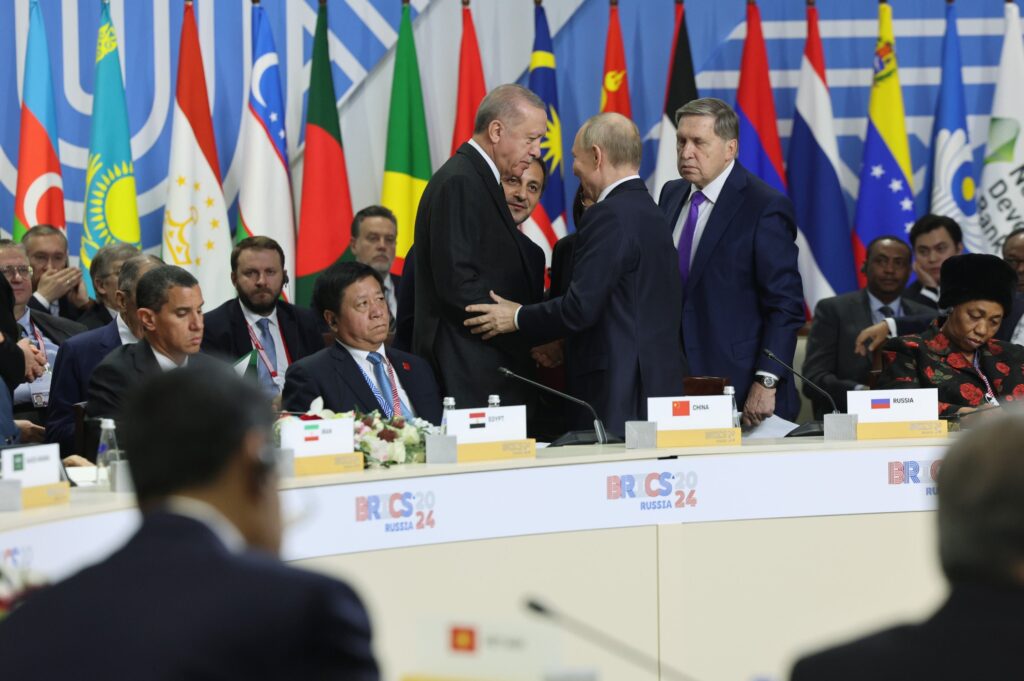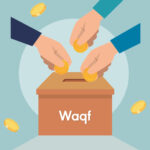The North Atlantic Treaty Organisation (NATO), the security alliance of the western nations led by the USA is having an uneasy period after celebrating its 75th year of founding in July this year with big fanfare. The recent summit of the BRICS in Kazan of Russia held on October 22 to 24 witnessed the presence of two countries close to the West — first Saudi Arabia as a newly admitted member and another Turkey which has applied for BRICS membership despite being a member of NATO.
President Vladimir Putin who hosted the summit has shown to the West that as a host, Russia has not only achieved success in its economic performance, but also has performed better diplomatically during the Ukraine war by bringing a NATO member under the grouping of nations led by it. President Recep Tayip Erdogan of Turkey has been most enthusiastic in leading the process of membership of Turkey in this anti-West grouping.
Turkey is a very important member of NATO having the second largest army among the 32 member NATO nations. This Eurasian nation is the crucial outpost of the NATO in West Asia and the country’s participation in a bloc dominated by Russia and China, does not look well from the security aspects of NATO. This is more so now as the West Asian war has spread to Iran and Lebanon apart from Gaza and Turkey has a strong view against Israel. In fact, Turkey has been assisting the Palestinian fighters in a number of ways including giving them medical supplies.
The BRICS till the Kazan summit consisted of Brazil, Russia, China, India and South Africa. Talks were under way with a number of countries in the recent years for new membership. Finally, it was decided to give membership to Egypt, Ethiopia, Iran, UAE and Saudi Arabia. Turkey can be admitted as a full member at the next summit. If that happens, that will be the first time a NATO member and a long time candidate for European Union membership, will be a part of the powerful BRICS bloc, which even though it does not call itself as the challenger to NATO, its economic and political strength pose that possibility in the coming days.
NATO was founded in 1949 in the thick of the cold war between the Soviet Union and USA. Initially, NATO was intended against Soviet threat and ‘expansionism’. After the fall of the Soviet Union in 1991, for a few years, there was no such threat. After President Putin consolidated his position in the truncated Russia, the NATO became active. In the wake of the Ukraine war, NATO is helping the Ukraine President Zelensky in meeting the Russian attack by supplying high tech equipment. All the NATO nations are supplying arms.
In this backdrop of confrontation between Russia and NATO, President Putin got massive response to his efforts for expanding BRICS by inviting large number of countries belonging to Asia and Africa. Thailand and Malaysia have also applied for membership. Pakistan and many other countries of South Asia are showing interest in getting BRICS membership. The main reason is economic as BRICS membership brings big benefits to the less developed nations through cooperation in a number of areas including exports, energy and infrastructure development.
Collaboration among BRICS members in energy, trade, and infrastructure development is growing at a faster pace.. As a share of global trade, intra-BRICS trade in goods more than doubled from 2002 to 2022, reaching 40 percent. In 2015, the group created the Shanghai-based New Development Bank with $50 billion in capital. The bank, headed by former Brazilian President Dilma Rousseff, has since lent $33 billion for 96 projects. These NDB loans are most useful for the developing nations and this aspect has drawn the attention of the aspiring members who are looking for cheap and long term loans to finance their projects.
Turkey in fact is playing a cunning diplomatic game by making use of its advantageous position as a major power in the border of Asia and Europe. President Erdogan wants to enjoy the privilege of having some additional benefits as a BRICS member while remaining as a member in NATO. He knows that the US and other NATO nations may be worried but officially, they will not dare to tell him anything contrary as he is maintaining that BRICS is not a security alliance against NATO, it is a developmental bloc. There is no contradiction between the BRICS membership and remaining a NATO member, he has mentioned on many occasions.
President Erdogan is an authoritarian but he is liked by a large section of the population of Turkey for his nationalistic vibes. He always recalls Turkey’s Ottoman empire legacy and favours a multipolar world. That fits in with Turkey spreading its wings and gaining more strength diplomatically through its balancing actions between the two contending groups. At the July NATO summit in Washington, before the conference began, there was some talk that President Erdogan will be grilled due to his hobnobbing with Russia and China, but nothing such happened after the Turkish President explained his position. It seemed that the NATO leaders opted for wait and watch policy towards Turkey.
While Turkey has improved its economic relations with Russia taking into account its domestic compulsions, the country’s economic relations with China got a big boost in June this year just before the Washington summit of NATO. Turkish Foreign Minister Hakan Fidan’s visit to China in June facilitated discussions on cooperation in tourism, trade, and energy. The most significant outcome was the proposal of Turkey for collaboration in nuclear energy and also in exploiting precious minerals resources. Turkey is presently facing economic problems with rising unemployment among youth. President Erdogan is desperately looking for ventures which can lead to speedy generation of new jobs.
As regards NATO, the alliance has increased its NATO Response Force deployments in Eastern Europe, and the combined militaries of all NATO members include around 3.5 million soldiers and personnel. All member states together cover an area of 25.07 million km with a population of about 973 million people. Their combined military spending as of 2022 constituted around 55 percent of the global nominal total. Moreover, members have agreed to reach or maintain the target defence spending of at least two percent of their GDP by 2024.
With only six days left for the Presidential elections in USA on November 5 this year, the top generals of NATO in the Brussels headquarter are anxiously waiting for the outcome of the elections. If Donald Trump wins, it is sure that there will be a drastic shift in US approach to NATO. In his earlier term, NATO faced big problem from Trump but somehow, the situation was tackled with less impact on NATO operations. But this time in 2025 January, if Trump takes over, he will certainly be adamant on implementing 2 per cent of GDP spending by each member nation for NATO. Trump is expected to cut funds for Ukraine war. That is the main worry at the NATO headquarters, apart from Turkey. (IPA Service)

 Opposition Protests Ex-Judges’ Involvement in Waqf Panel Meeting
Opposition Protests Ex-Judges’ Involvement in Waqf Panel Meeting 